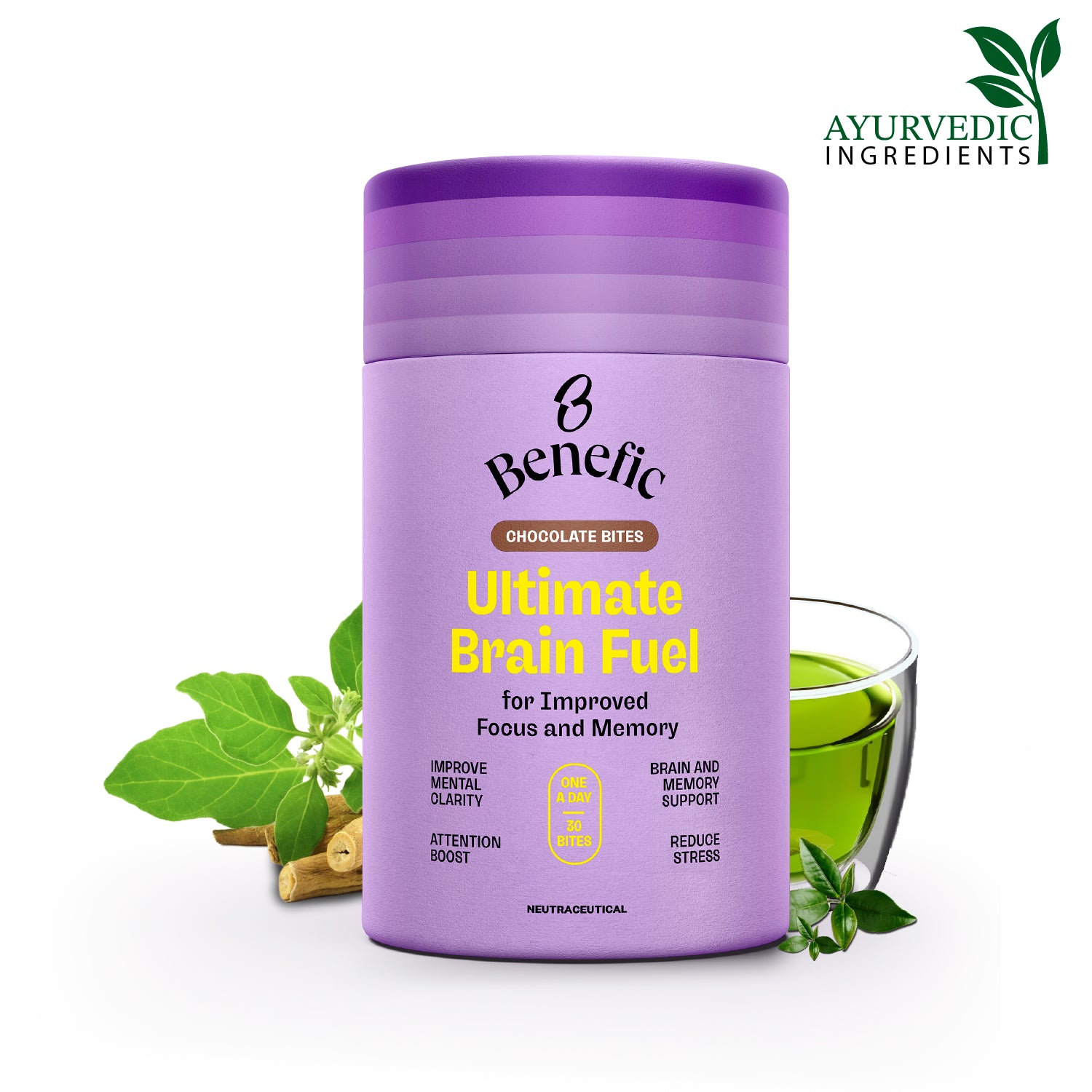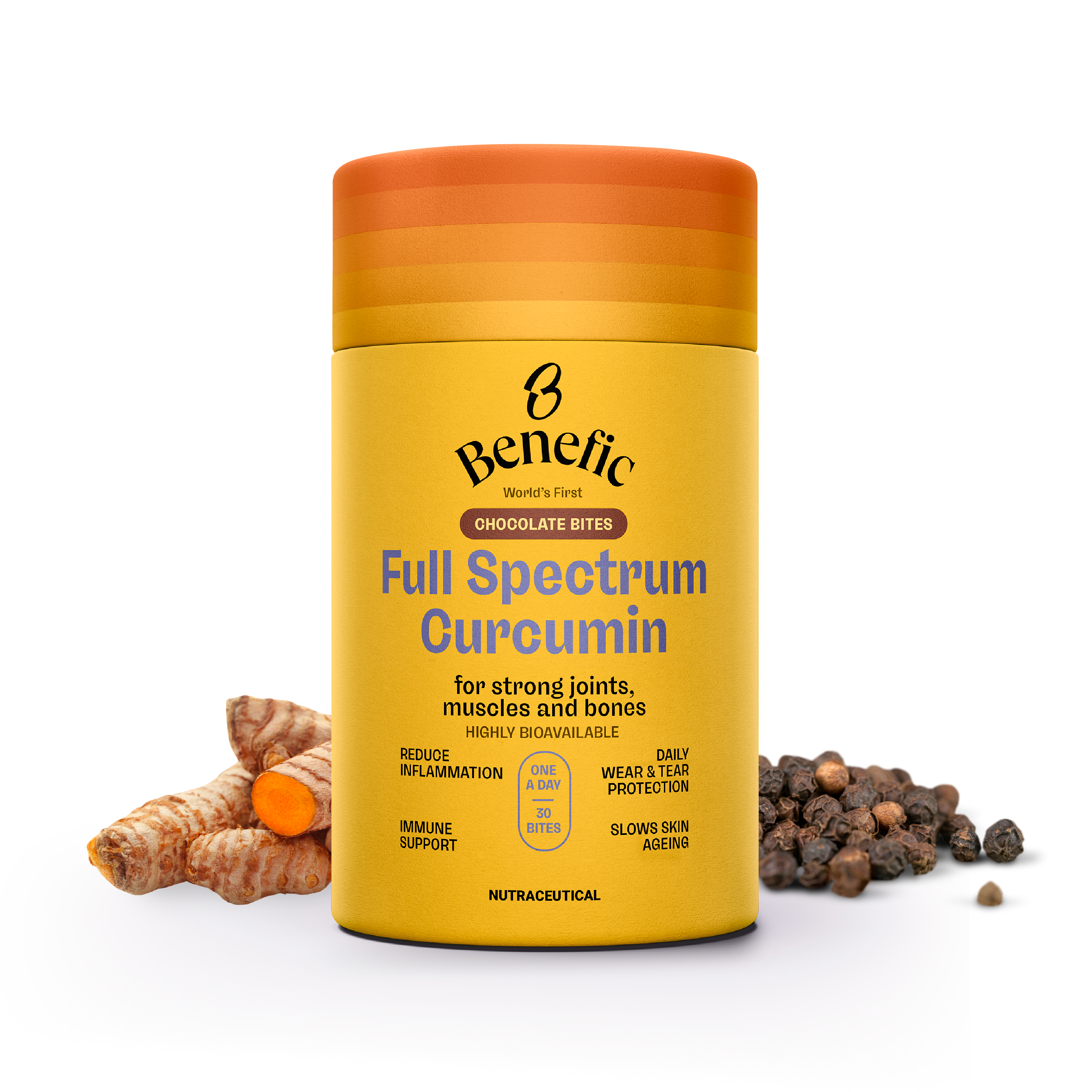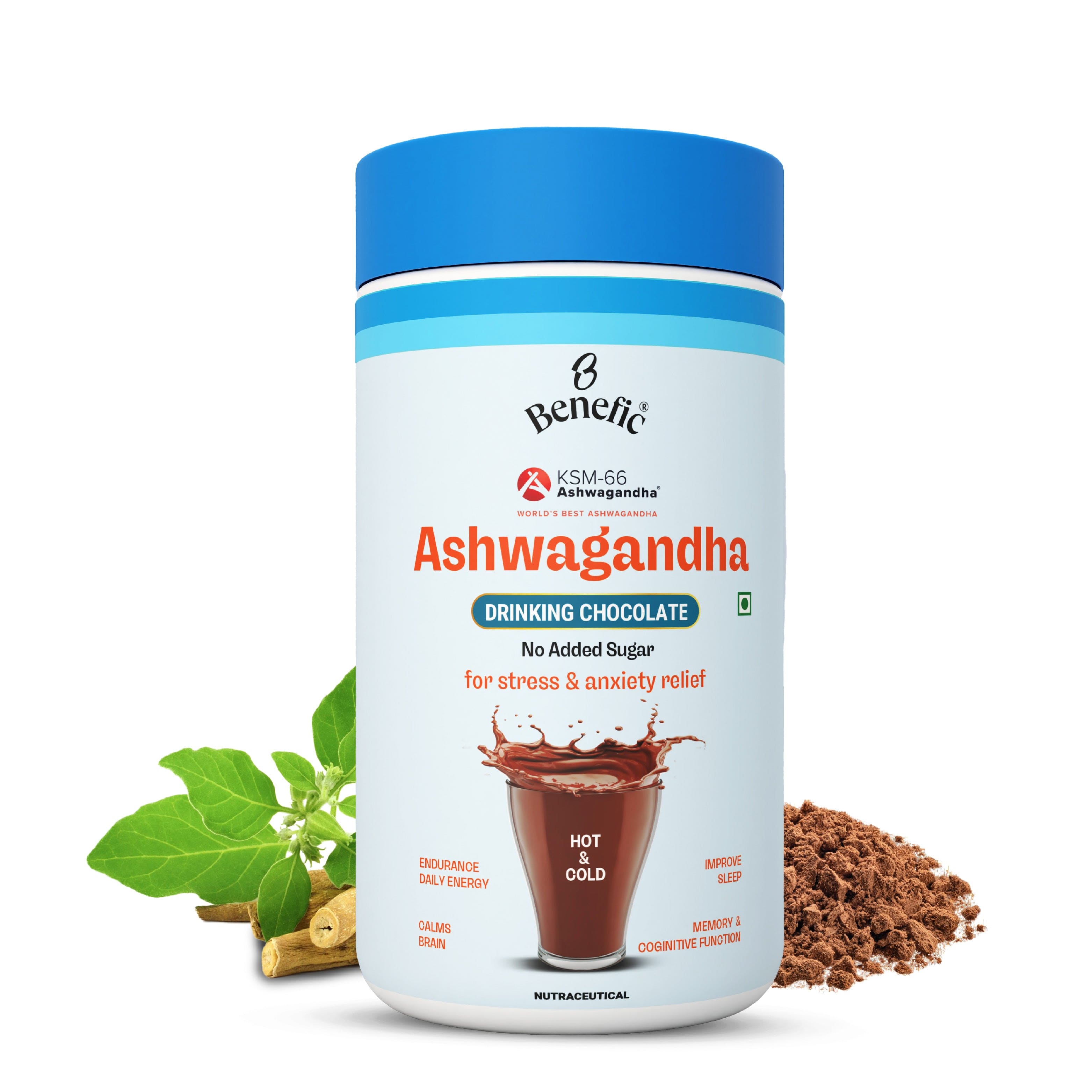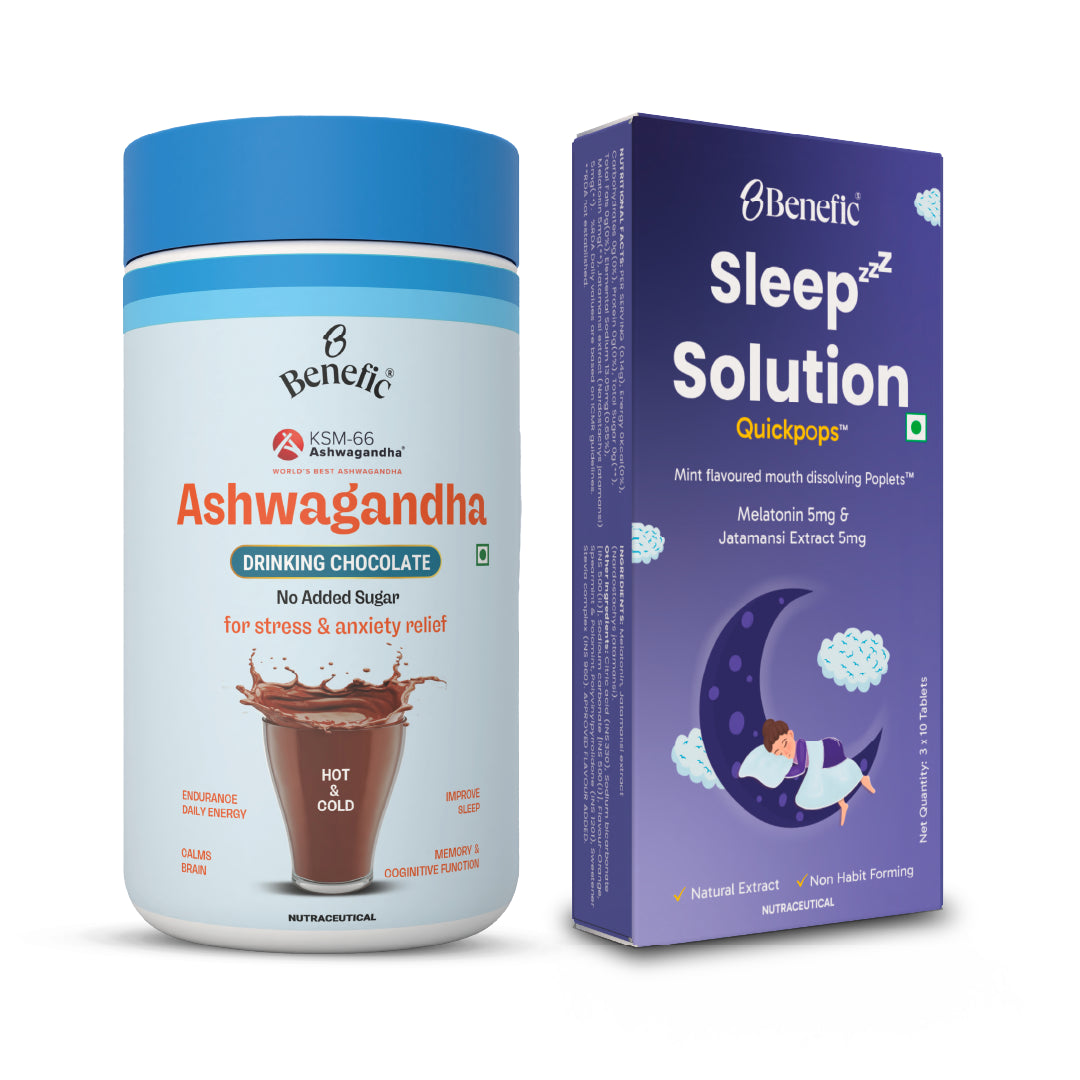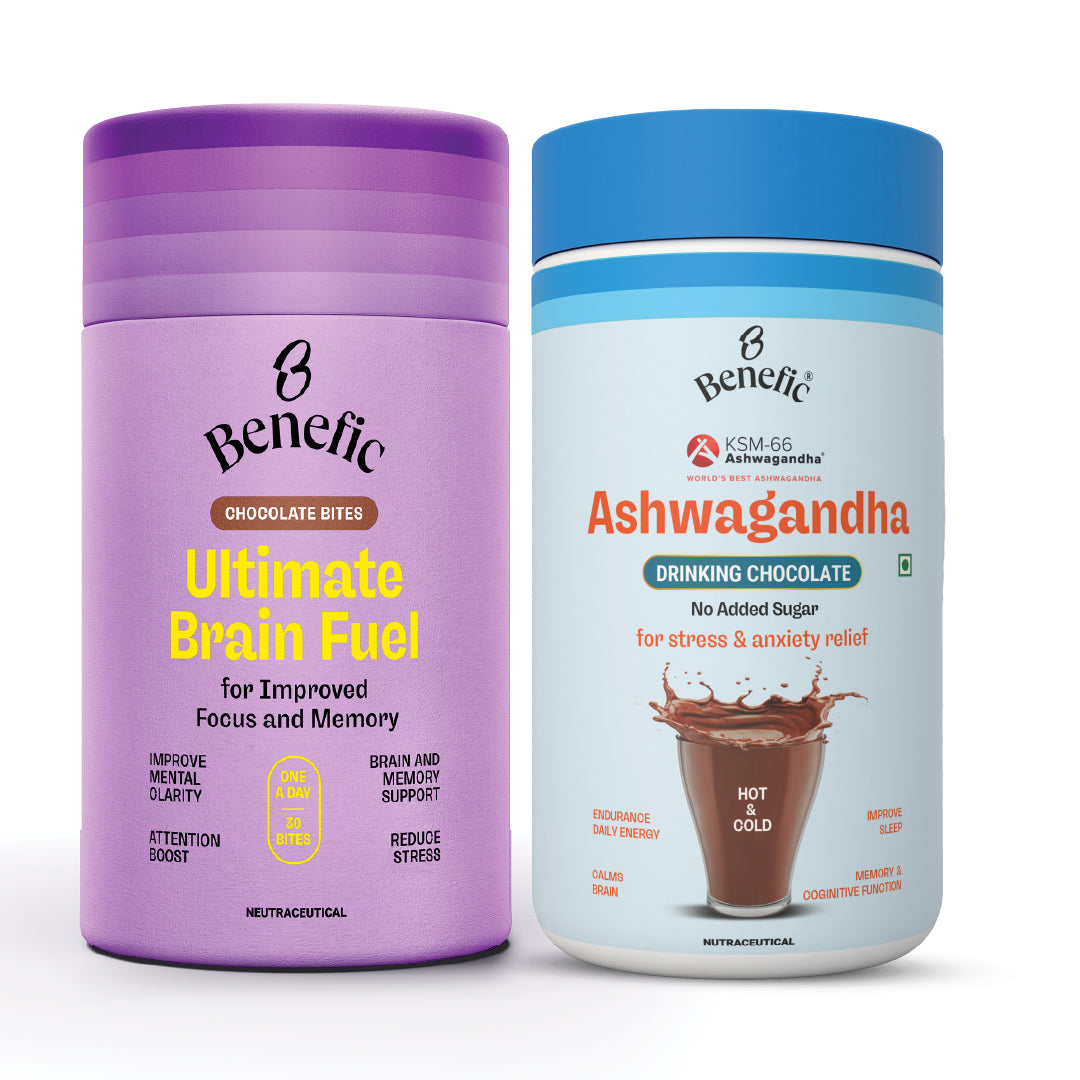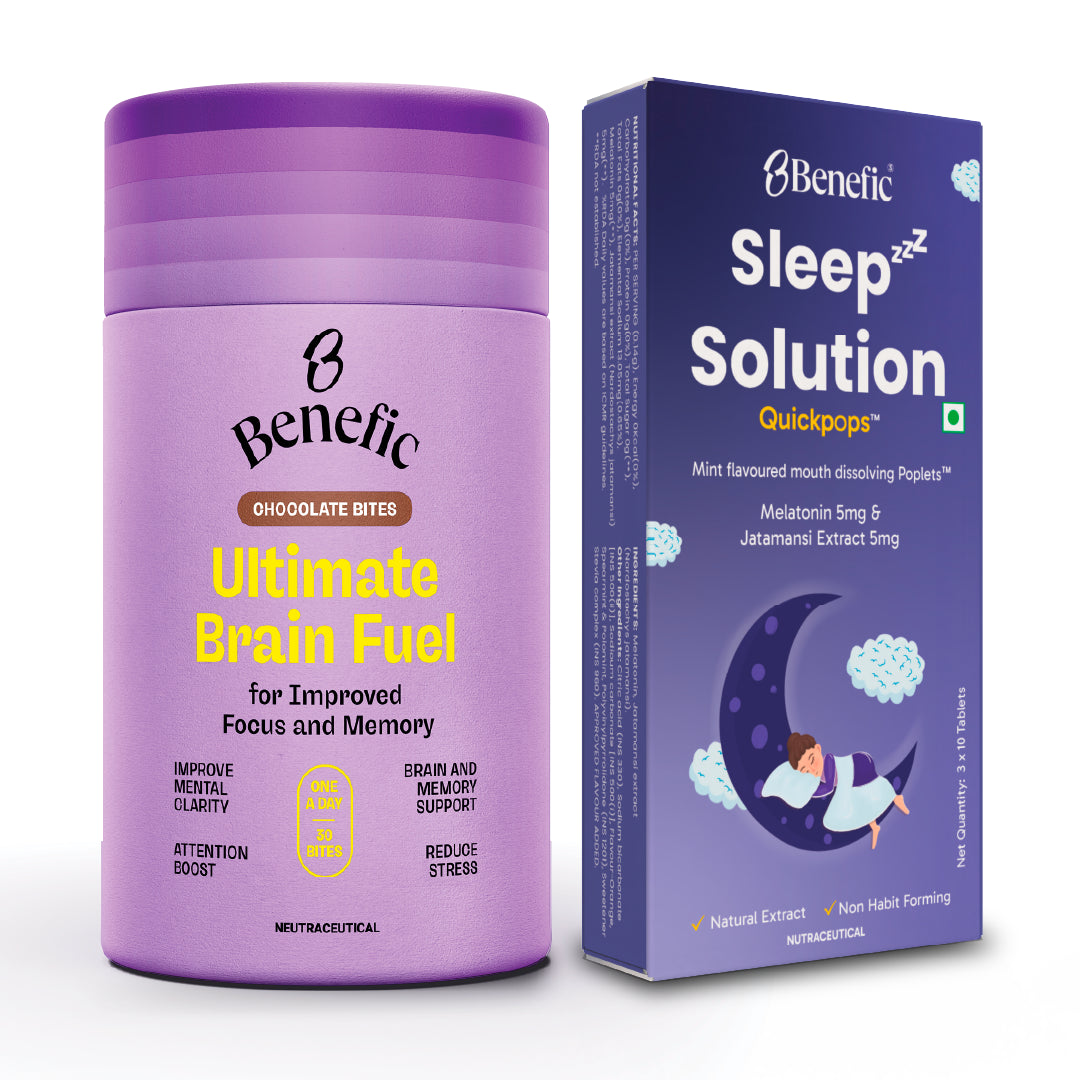1. Stress, Anxiety:
In today’s world, chronic stress affects contemporary society and stress is often associated with a rise in the concentration of serum cortisol in our body. Ashwagandha is classified as an adaptogen which means that it helps the body to adapt to stress inducing conditions, by decreasing the inflammation and infection, and by modulating adrenal hormones and neurotransmitters.
Chronic stress related conditions such as hyperglycemia, glucose intolerance, sexual dysfuntion, immunosuppression and mental depression were also found to be mediated through the use of Ashwagandha [5]. Several randomized and controlled human studies have shown that Ashwagandha can not only reduce symptoms in people with stress and anxiety disorders, but also improve the general well-being.
In a study carried out on 64 subjects with a history of chronic stress, the administration of Ashwagandha root extract for 8 weeks led to a significant reduction in the level of serum cortisol resulting in a reduction in stress [6].
2. Body Weight Management
Chronic stress is often associated with a wide number of diseases and conditions, including obesity. Ashwagandha can benefit a weight management program by addressing stress and balancing cortisol levels. A study conducted found that continuous use of the herb resulted in improved scores on the perceived stress scale, positively affected serum cortisol, body mass index (BMI) and body weight [7].
3. Memory and Cognition
Historically, Ashwagandha has also been categorized as a medharasayana– a nootropic herb in Ayurveda to promote cognition in children with memory deficits, and for memory loss in aging adults [8]. Ashwagandha is known to enhance brain function, response times, memory, concentration capacity, and task performance capability. Many studies demonstrate how alkaloids from Ashwagandha help nerve regeneration, boost neural growth in both humans and animals; but the evidence in humans is very limited.
A study was carried out in 50 adults with mild cognitive impairment, a common precursor of Alzheimer’s disease, who received twice daily over 8 weeks of Ashwagandha root extract 300 mg. The research confirms its traditional use to enhance memory [9]. In another research of 53 individuals with bipolar disorder, ashwagandha extract also augmented working memory [10]
Ashwagandha has also been found to aid in the control of the symptoms of obsessive- compulsive disorder [11]. Ashwagandha is also highly effective in reducing the reaction time and improving attention spans in those with attention deficit hyperactivity disorder (ADHD)[12].
4. Muscle Strength
Ashwagandha, an amphoteric herb regulated vital physiological processes and ashwagandha increases the levels of adenosine triphosphate (ATP), by reducing the enzyme that breaks down ATP. Ashwagandha increase energy production in the muscles by increasing mitochondrial function. Ashwagandha is known enhance muscle mass, muscle strength and also decrease body fat in conjunction with resistance training. Ashwagandha also helps alleviate and heal the body’s damage and promote muscle recovery during exercise.
In a research carried out in 57 untrained individuals, Ashwagandha root extract showed a substantial rise in muscle strength, muscle size and a substantial decline in exercise-induced muscle damage relative to placebo [13]. In a research conducted with 40 healthy participants, 10 of them obtained standardized root extracts of Ashwagandha (Withania somnifera) and supplementation may be useful in improving generalized muscle weakness, enhancing muscle power in the lower limb and neuromuscular coordination [14].
In another research, 18 healthy volunteers were provided enhanced doses of ashwagandha over a period of 30 days: 750mg / day for days 1-10, 1000mg / day for days 11-20, and 1250mg / day for days 21-30 and the study demonstrated that Ashwagandha supplementation resulted in increased muscle strength and lean body mass[15].
5. Cardiorespiratory Endurance
Studies suggest that Ashwagandha roots have the ability to boost energy and have a significant impact on athletic performance by improving cardiovascular endurance and strength in healthy men and women.
A prospective, double blind, randomized, placebo-controlled trial conducted in India, demonstrated that the supplementation of Ashwagandha root extract over 12 weeks, enhanced endurance, volume of oxygen (VO2 max) and self-reported physical health [16]. The study reported no change in vital parameters, despite the increase in cardiorespiratory endurance.
One study evaluated the effects of Ashwagandha extract on 40 elite cyclists for 8 weeks [17]. The experimental group receiving Ashwagandha demonstrated a significant improvement in the volume of oxygen (VO2 max) and duration until exhaustion on a treadmill test.
Another study examined the effects of Ashwagandha extract on VO2 max in male hockey players for 8 weeks. The experimental group receiving Ashwagandha demonstrated a significant improvement in VO2 max and hemoglobin levels, thus demonstrating that ashwagandha improves energy supply to muscles during exercise [18].
6. Male sexual wellness
In Ayurvedic medicine, Ashwagandha, the magical herb is revered as an aphrodisiac and is used to treat sexual dysfunction and infertility in men. According to the Ayurvedic philosophy, one of the most important benefits of Ashwagandha is the ability to stimulate and regulate testosterone production in the body. Maintaining healthy levels of testosterone is essential to men’s health.
Ashwagandha contributes in two ways to restoring a healthy sex life. Firstly, it helps to produce testosterone and then it raises the luteinizing hormone and testosterone serum concentrations and revitalizes men’s natural sex hormone equilibrium. Secondly, as ashwagandha is known to reduce stress by inhibiting the growth of cortisol, it also helps in the delay of natural testosterone reduction. There is emerging evidence in modern science that Ashwagandha helps to boost testosterone concentrations in males and has a beneficial effect on their reproductive health.
A study conducted in 2013 involved 46 males with oligospermia, a condition that causes low sperm count. Supplementation with KSM-66 Ashwagandha increased testosterone by 17%, semen volume by 53%, sperm concentration by 167%, lutenizing hormone by 34% and sperm motility by 57% [19]. In another study conducted, a daily dose of 5 g Ashwagandha enhanced sperm count and motility over 3 months in 75 males experiencing infertility [20].
7. Female Sexual Health
Ashwagandha plays a significant role in reducing stress and is therefore strongly linked to improving reproductive health for women. Ashwagandha regulates hormones, facilitates your reaction to psychological and physical stress and optimizes your reproductive system.
Ashwagandha is known to strengthen the adrenal glands, reduce cortisol, and increase the production of blood. Ashwagandha has a positive effect on libido, menstrual health and can also aid in infertility.
In a study conducted to evaluate the sexual function in women including happiness, excitement, lubrication and orgasm, the supplementation of Ashwagandha root extract demonstrated a considerable improvement in the sexual function of females relative to those in the placebo group [21].
8. Thyroid health
Stress is the major root cause of thyroid dysfunction. Ashwagandha has a distinctive resilience and helps the body cope with stress and modulates the hormone balances [22]. An 8-week research of 50 individuals with hypothyroidism concluded that consumption of 300 mg of ashwagandha root extract twice daily resulted in significant changes in thyroid concentrations relative to getting placebo [23].
9. Sleep
Sleep is critical for the health of an individual and quality sleep supports our mental and physical performance. For centuries, Ashwagandha has been recommended for sleep, owing to its sleep inducing potential.
A prospective, randomized, double blind, placebo controlled study conducted on sleep challenged subjects, demonstrated that the supplementation of Ashwagandha root extract for 10 weeks, resulted in increased sleep quality, sleep efficiency and decreased anxiety [24]. Another study conducted in the elderly subjects, demonstrated that the supplementation of Ashwagandha root extract resulted in increased quality of sleep, mental alertness and improved quality of life [25].
10. Elderly
Ageing generates concerns about ongoing health and vitality, including decline in physical and mental function. Ashwagandha is a rasayana, known to promote health, longevity, arrest the aging process and act as a rejuvenative.
A prospective, randomized, double blind, placebo-controlled study conducted in elderly adults to examine the effects of Ashwagandha demonstrated an increase in sleep quality, sleep efficiency, mental alertness and an improvement in the physical and psychological wellbeing [26]
11. Anti-aging and longevity
Ashwagandha roots are classified as Rasayanas that encourage health and longevity by increasing disease defences, stopping the aging process, revitalizing the body under weakened circumstances and thus generating a feeling of well-being A research conducted to assess the antioxidant capacity of Ashwagandha roots in 30 individuals showed an improvement in antioxidant enzyme superoxide dismutase and decreased indicators of oxidative stress. As a result, Ashwagandha’s antioxidant characteristics may possibly improve longevity [27].
In another research, Ashwagandha expanded the lifetime of a Caenorhabditis elegans (C. elegans) worm species [28].
Telomeres are particular DNA sequences that form caps at the end of our chromosomes and are considered to be important aging markers. In a research conducted, Ashwagandha was identified to boost telomerase activity in HeLa cell cultures and thus boost longevity [29].
12. Immunity
Traditional use combined with modern day evidence, suggests that Ashwagandha is one of the potent herbs that can aid in boosting immunity [30]. Ashwagandha improves the body’s defense against disease by improving the cell-mediated immunity.
A study conducted to evaluate effect of Ashwagandha (Withania somnifera) as an adjuvant to the DOTS regime on many immunological parameters in sputum smear-positive pulmonary Tuberculosis demonstrated that Ashwagandha significantly increased the CD4 and CD8 count, indicating its ability to increase immunity and phagocytic activity [31].
13. Arthritis
Arthritis is a chronic problem and can negatively affect the quality of life of an individual. Another traditional use of Ashwagandha is in the treatment of various musculo-skeletal conditions such as arthritis and rheumatism. A study conducted in combination with Sidh Makardhwaj (an Ayurvedic treatment for arthritis), demonstrated that the use of Ashwagandha powder eased the swollen and painful joints in people with rheumatoid arthritis [32].
14. Inflammation
Inflammation is a part of the body’s defense mechanism, under normal conditions the body will produce an anti-inflammatory response to restore the balance. But in the cases of inflammatory disorders, the body will not be able to regulate the inflammatory response, thus resulting in chronic pain and imbalance.
Ashwagandha is one herb which has proven to be effective in reducing inflammation. A study conducted in humans have found that Ashwagandha increases the activity of natural killer cells that fight infection [33]. In another study, it was shown that supplementation of Ashwagandha extract resulted in a decrease in C-reactive protein when compared with the placebo group [34].
15. Blood Sugar
With the increased use of processed sugar, keeping blood sugar levels in check is important. Studies have shown that Ashwagandha is known for regulating blood sugar levels, an example of the herb’s Adaptogenic effect. A small study conducted with just six individuals with Type 2 diabetes, found that Ashwagandha may effectively reduce blood sugar levels in the body [35]. In a study conducted on people suffering with Schizophrenia, the supplementation of Ashwagandha for 4 weeks, resulted in a reduction in blood sugar levels [36].
16. Cancer
Ashwagandha has a wide range of therapeutic use. One of the benefits of Ashwagandha owes to its anti-cancer property and research has shown than Ashwagandha can be effective in inducing apoptosis of cancer cells and also prevents the propagation of these cancer cells. Another potential benefit of Ashwagandha is enhancing the white blood cell count of the individuals with cancer. Ashwagandha’s immunomodulatory properties and the safety of the herb, can facilitate the use of Ashwagandha in conjunction with chemotherapy and radiotherapy. Studies also suggest that Ashwagandha may help in the treatment of various types of cancers, including lung, breast, colon, brain and ovarian cancer [37].



